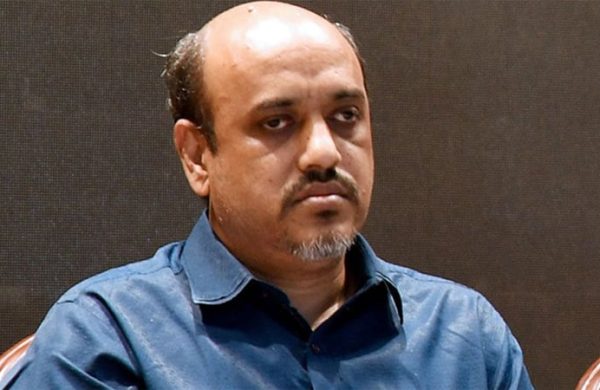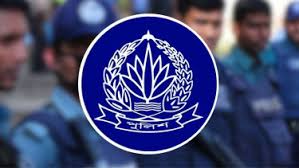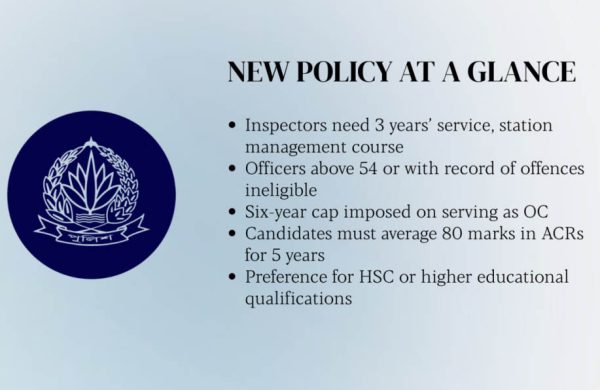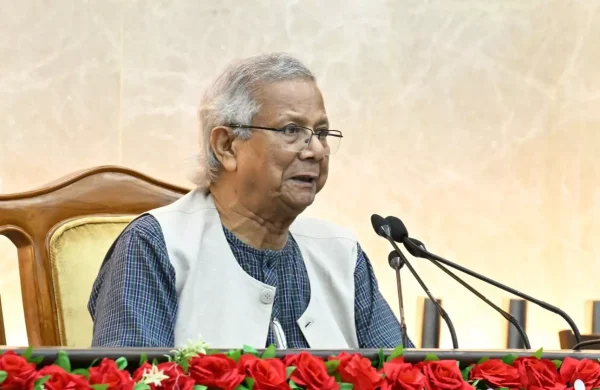There are examples of turning ex-enemies into allies: Azad Majumder
- Update Time : Friday, April 18, 2025

Staff Correspondent:
Claiming that the interim government has taken a pro-Bangladesh foreign policy, Chief Adviser’s Deputy Press Secretary Abul Kalam Azad Majumder on Friday said there are examples of turning former enemies into allies in the world.
“There are many instances of former enemies turning into allies,” he wrote in a post on his verified Facebook account.
Citing examples, he mentioned that France and England fought countless wars for centuries, but joined hands in the Second World War.
The US bombed Japan in the same war, but later turned the country into an ally, Azad said.
He added: “The other day, we faced a question about whether Bangladesh is shifting its foreign policy to be pro-Pakistan. It did not surprise us at all.”
There will always be some people who will rarely believe in Bangladesh’s independent identity, he said.
“Our response was obvious. Irrespective of whatever happened in the past with regard to the country’s foreign policy, it will be a pro-Bangladesh policy from now on, driven by our own interest,” the deputy press secretary said.
Distancing from one neighbour to keep another happy cannot be the foreign policy of an independent nation, he added.
He said it took the interim government less than 24 hours to translate its words into action by reminding Amna Baloch, the visiting foreign secretary of Pakistan, the outstanding issues between the two countries, while at the same time agreeing to work together for mutual benefits.
One of the emotive issues, of course hindering Bangladesh-Pakistan relations, is Bangladesh’s demand for an apology from Pakistan for the genocide and atrocities committed by its armed forces in 1971, Azad said.
He said even many in Pakistan’s civil society, media, and intelligentsia believed that an apology would be an act of goodwill and grace, but the Pakistan’s Foreign Office and military bureaucracy were always opposed to such an idea, and thus a formal apology never came.
Bangladesh also pressed for the issue of division of assets, which was a forgotten matter for the past regimes, who preferred disengagement to talks, the deputy press secretary said.
According to an estimate, he said, Bangladesh has a claim of at least US$ 4.32 billion as of 1974.
The estimate was based on assumptions with respect to internal capital creation, external debt settlement, and retention of external financial assets, he mentioned.
He said Bangladesh has an additional claim of about US$ 200 million, which was donated by foreign countries/agencies for the cyclone victims of the then East Pakistan in November 1970.
“The money was lying in the office of the State Bank of Pakistan in Dhaka before it was transferred to the Lahore Branch of the State Bank of Pakistan during our war of liberation in 1971,” Azad said.
He said the repatriation of stranded Pakistanis was another issue that hindered the relationship between the two countries.
In the past, he said, Pakistan only took back around 125,000 of its people, but some 325,000 are housed in 79 camps in 14 districts of Bangladesh.
Azad said these are the issues that continued to remain as barriers in order to move towards a healthy and forward-looking bilateral relationship between the two countries.
“And the best option to resolve the issues is obviously talks, and this is exactly what the interim government is trying to do.
“It has brought Pakistan to talks after long years and duly raised the issues while at the same time looking to explore trade and commerce potential for mutual benefits,” he wrote in his post.
The deputy press secretary reminded that Chief Adviser Professor Muhammad Yunus, during his meeting with his counterpart Shehbaz Sharif in Egypt earlier this year, spoke about the need for resolving the outstanding issues, and on Thursday, while holding a meeting with Baloch at the State Guest House Jamuna, he reiterated his call.
But, in the same meeting, Prof Yunus insisted on a sound relationship with neighbouring countries, including Pakistan, to tap the huge economic potential of the region, he said.
“It is perhaps time for Bangladesh and Pakistan to move on and work together to resolve the past issues for future benefits,” Azad said.


















